HSBC 2004 Annual Report Download - page 218
Download and view the complete annual report
Please find page 218 of the 2004 HSBC annual report below. You can navigate through the pages in the report by either clicking on the pages listed below, or by using the keyword search tool below to find specific information within the annual report.-
 1
1 -
 2
2 -
 3
3 -
 4
4 -
 5
5 -
 6
6 -
 7
7 -
 8
8 -
 9
9 -
 10
10 -
 11
11 -
 12
12 -
 13
13 -
 14
14 -
 15
15 -
 16
16 -
 17
17 -
 18
18 -
 19
19 -
 20
20 -
 21
21 -
 22
22 -
 23
23 -
 24
24 -
 25
25 -
 26
26 -
 27
27 -
 28
28 -
 29
29 -
 30
30 -
 31
31 -
 32
32 -
 33
33 -
 34
34 -
 35
35 -
 36
36 -
 37
37 -
 38
38 -
 39
39 -
 40
40 -
 41
41 -
 42
42 -
 43
43 -
 44
44 -
 45
45 -
 46
46 -
 47
47 -
 48
48 -
 49
49 -
 50
50 -
 51
51 -
 52
52 -
 53
53 -
 54
54 -
 55
55 -
 56
56 -
 57
57 -
 58
58 -
 59
59 -
 60
60 -
 61
61 -
 62
62 -
 63
63 -
 64
64 -
 65
65 -
 66
66 -
 67
67 -
 68
68 -
 69
69 -
 70
70 -
 71
71 -
 72
72 -
 73
73 -
 74
74 -
 75
75 -
 76
76 -
 77
77 -
 78
78 -
 79
79 -
 80
80 -
 81
81 -
 82
82 -
 83
83 -
 84
84 -
 85
85 -
 86
86 -
 87
87 -
 88
88 -
 89
89 -
 90
90 -
 91
91 -
 92
92 -
 93
93 -
 94
94 -
 95
95 -
 96
96 -
 97
97 -
 98
98 -
 99
99 -
 100
100 -
 101
101 -
 102
102 -
 103
103 -
 104
104 -
 105
105 -
 106
106 -
 107
107 -
 108
108 -
 109
109 -
 110
110 -
 111
111 -
 112
112 -
 113
113 -
 114
114 -
 115
115 -
 116
116 -
 117
117 -
 118
118 -
 119
119 -
 120
120 -
 121
121 -
 122
122 -
 123
123 -
 124
124 -
 125
125 -
 126
126 -
 127
127 -
 128
128 -
 129
129 -
 130
130 -
 131
131 -
 132
132 -
 133
133 -
 134
134 -
 135
135 -
 136
136 -
 137
137 -
 138
138 -
 139
139 -
 140
140 -
 141
141 -
 142
142 -
 143
143 -
 144
144 -
 145
145 -
 146
146 -
 147
147 -
 148
148 -
 149
149 -
 150
150 -
 151
151 -
 152
152 -
 153
153 -
 154
154 -
 155
155 -
 156
156 -
 157
157 -
 158
158 -
 159
159 -
 160
160 -
 161
161 -
 162
162 -
 163
163 -
 164
164 -
 165
165 -
 166
166 -
 167
167 -
 168
168 -
 169
169 -
 170
170 -
 171
171 -
 172
172 -
 173
173 -
 174
174 -
 175
175 -
 176
176 -
 177
177 -
 178
178 -
 179
179 -
 180
180 -
 181
181 -
 182
182 -
 183
183 -
 184
184 -
 185
185 -
 186
186 -
 187
187 -
 188
188 -
 189
189 -
 190
190 -
 191
191 -
 192
192 -
 193
193 -
 194
194 -
 195
195 -
 196
196 -
 197
197 -
 198
198 -
 199
199 -
 200
200 -
 201
201 -
 202
202 -
 203
203 -
 204
204 -
 205
205 -
 206
206 -
 207
207 -
 208
208 -
 209
209 -
 210
210 -
 211
211 -
 212
212 -
 213
213 -
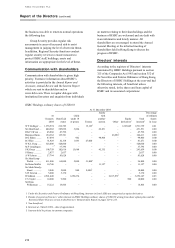 214
214 -
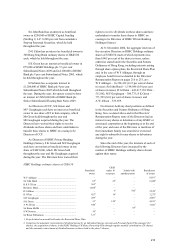 215
215 -
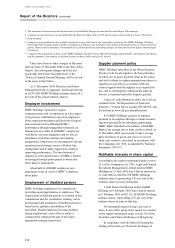 216
216 -
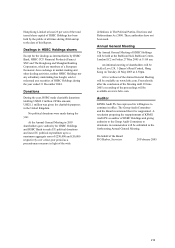 217
217 -
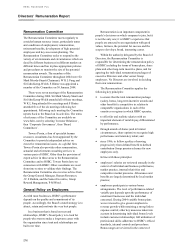 218
218 -
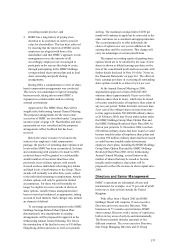 219
219 -
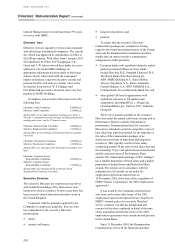 220
220 -
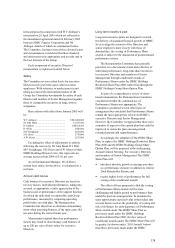 221
221 -
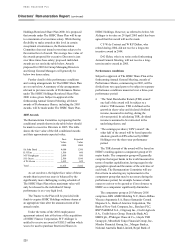 222
222 -
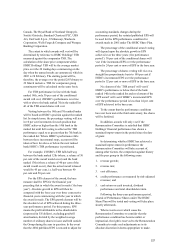 223
223 -
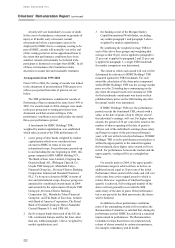 224
224 -
 225
225 -
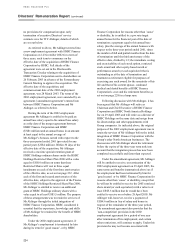 226
226 -
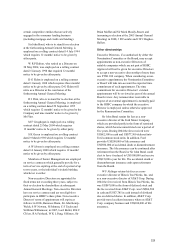 227
227 -
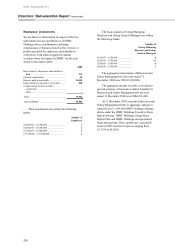 228
228 -
 229
229 -
 230
230 -
 231
231 -
 232
232 -
 233
233 -
 234
234 -
 235
235 -
 236
236 -
 237
237 -
 238
238 -
 239
239 -
 240
240 -
 241
241 -
 242
242 -
 243
243 -
 244
244 -
 245
245 -
 246
246 -
 247
247 -
 248
248 -
 249
249 -
 250
250 -
 251
251 -
 252
252 -
 253
253 -
 254
254 -
 255
255 -
 256
256 -
 257
257 -
 258
258 -
 259
259 -
 260
260 -
 261
261 -
 262
262 -
 263
263 -
 264
264 -
 265
265 -
 266
266 -
 267
267 -
 268
268 -
 269
269 -
 270
270 -
 271
271 -
 272
272 -
 273
273 -
 274
274 -
 275
275 -
 276
276 -
 277
277 -
 278
278 -
 279
279 -
 280
280 -
 281
281 -
 282
282 -
 283
283 -
 284
284 -
 285
285 -
 286
286 -
 287
287 -
 288
288 -
 289
289 -
 290
290 -
 291
291 -
 292
292 -
 293
293 -
 294
294 -
 295
295 -
 296
296 -
 297
297 -
 298
298 -
 299
299 -
 300
300 -
 301
301 -
 302
302 -
 303
303 -
 304
304 -
 305
305 -
 306
306 -
 307
307 -
 308
308 -
 309
309 -
 310
310 -
 311
311 -
 312
312 -
 313
313 -
 314
314 -
 315
315 -
 316
316 -
 317
317 -
 318
318 -
 319
319 -
 320
320 -
 321
321 -
 322
322 -
 323
323 -
 324
324 -
 325
325 -
 326
326 -
 327
327 -
 328
328 -
 329
329 -
 330
330 -
 331
331 -
 332
332 -
 333
333 -
 334
334 -
 335
335 -
 336
336 -
 337
337 -
 338
338 -
 339
339 -
 340
340 -
 341
341 -
 342
342 -
 343
343 -
 344
344 -
 345
345 -
 346
346 -
 347
347 -
 348
348 -
 349
349 -
 350
350 -
 351
351 -
 352
352 -
 353
353 -
 354
354 -
 355
355 -
 356
356 -
 357
357 -
 358
358 -
 359
359 -
 360
360 -
 361
361 -
 362
362 -
 363
363 -
 364
364 -
 365
365 -
 366
366 -
 367
367 -
 368
368 -
 369
369 -
 370
370 -
 371
371 -
 372
372 -
 373
373 -
 374
374 -
 375
375 -
 376
376 -
 377
377 -
 378
378
 |
 |

HSBC HOLDINGS PLC
Directors’ Remuneration Report
216
Remuneration Committee
The Remuneration Committee meets regularly to
consider human resource issues, particularly terms
and conditions of employment, remuneration,
retirement benefits, development of high potential
employees and key succession planning. The
Remuneration Committee seeks to respond to the
variety of environments and circumstances which are
faced by different businesses in different markets at
different times and has in place appropriate policies
and procedures to monitor the size of the potential
remuneration awards. The members of the
Remuneration Committee throughout 2004 were Sir
Mark Moody-Stuart (Chairman), W K L Fung and
Sir John Kemp-Welch. S Hintze was appointed a
member of the Committee on 30 January 2004.
There were seven meetings of the Remuneration
Committee during 2004. Sir Mark Moody-Stuart and
Sir John Kemp-Welch attended all of these meetings,
W K L Fung attended five meetings and S Hintze
attended five of the six meetings following her
appointment. Following each meeting the Committee
reports back to the Board on its activities. The terms
of reference of the Committee are available on
www.hsbc.com by selecting ‘Investor Relations’ ,
then ‘Corporate Governance’ , then ‘Board
Committees’ .
Towers Perrin, a firm of specialist human
resources consultants, has been appointed by the
Committee to provide independent advice on
executive remuneration issues. As a global firm,
Towers Perrin also provides other remuneration,
actuarial and retirement consulting services to
various parts of HSBC. Other than the provision of
expert advice in these areas to the Remuneration
Committee and to HSBC, Towers Perrin have no
connection with HSBC. Other consultants are used
from time to time to validate their findings. The
Remuneration Committee also receives advice from
the Group General Manager, Human Resources,
J C S Rankin, and the Senior Executive, Group
Reward Management, P M Wood.
General Policy on Employees
As with most businesses, HSBC’ s performance
depends on the quality and commitment of its
people. Accordingly, the Board’ s stated strategy is to
attract, retain and motivate the very best people.
In a business that is based on trust and
relationships, HSBC’ s broad policy is to look for
people who want to make a long-term career with
the organisation since trust and relationships are
built over time.
Remuneration is an important component in
people’ s decisions on which company to join, but it
is not the only one; it is HSBC’s experience that
people are attracted to an organisation with good
values, fairness, the potential for success and the
scope to develop a broad, interesting career.
Within the authority delegated by the Board of
Directors, the Remuneration Committee is
responsible for determining the remuneration policy
of HSBC including the terms of bonus plans, share
plans and other long-term incentive plans, and for
agreeing the individual remuneration packages of
executive Directors and other senior Group
employees. No Directors are involved in deciding
their own remuneration.
The Remuneration Committee applies the
following key principles:
• to ensure that the total remuneration package
(salary, bonus, long-term incentive awards and
other benefits) is competitive in relation to
comparable organisations in each of the
countries or regions in which HSBC operates;
• to offer fair and realistic salaries with an
important element of variable pay, differentiated
by performance;
• through awards of shares (and in limited
circumstances, share options) to recognise high
performance and retain key talent; and
• since 1996, to follow a policy of moving
progressively from defined benefit to defined
contribution Group pension schemes for new
employees only.
In line with these principles:
• employees’ salaries are reviewed annually in the
context of individual and business performance,
market practice, internal relativities and
competitive market pressures. Allowances and
benefits are largely determined by local market
practice;
• employees participate in various bonus
arrangements. The level of performance-related
variable pay depends upon the performance of
constituent businesses and the individual
concerned. During 2004 variable bonus plans
were reviewed to give greater emphasis to
revenue growth whilst retaining a strong link to
expense control; other key measures taken into
account in determining individual bonus levels
include customer relationships; full utilisation of
professional skills; adherence to HSBC’s ethical
standards, internal controls and procedures.
Bonus ranges are reviewed in the context of
